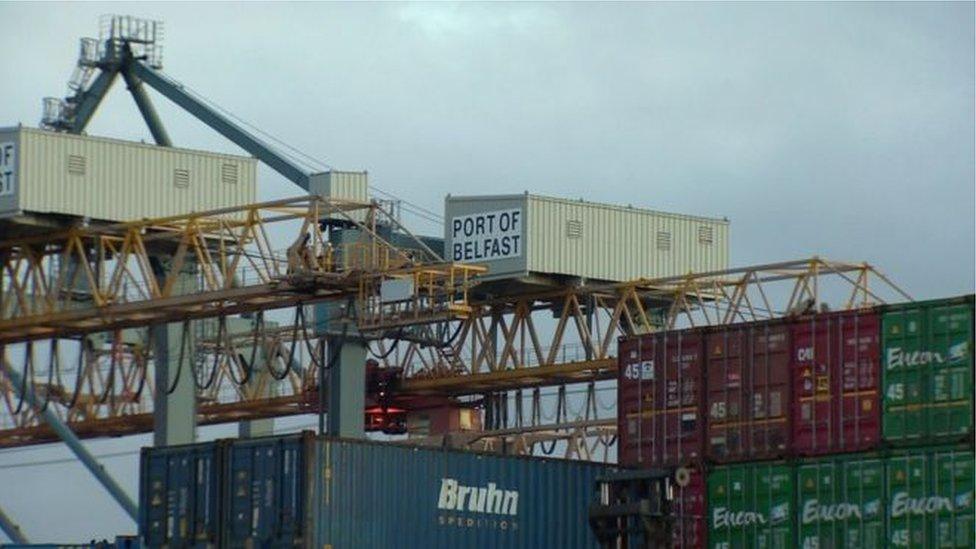What tasks lie ahead on the return to Stormont?
- Published
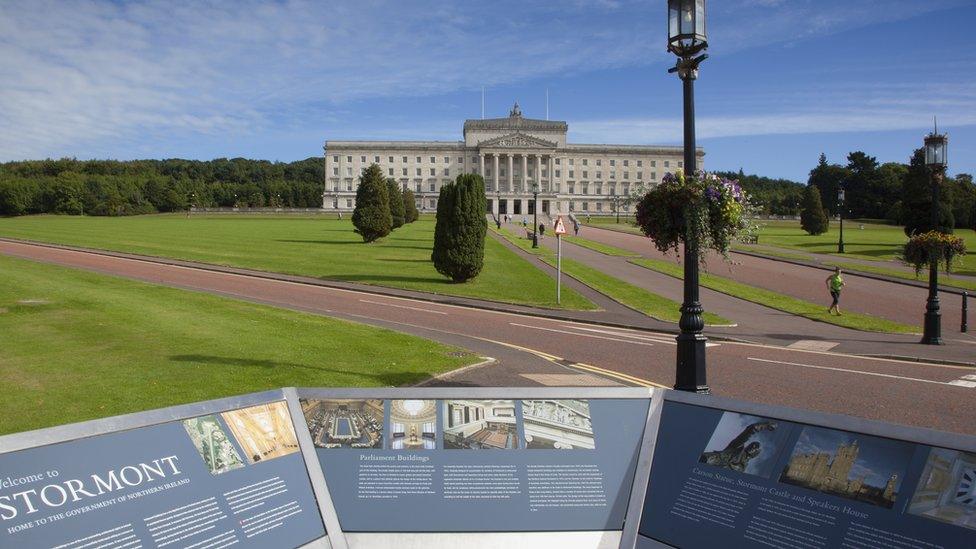
Power-sharing at Stormont returned in January after a three-year impasse and the parties were faced with handling a pandemic
The summer recess is now over and assembly members will return to Stormont this week, braced for a busy autumn.
Here's a guide to some of the challenges that lie ahead for the executive in the next few months.
Coronavirus
The executive managed to navigate its way through the first wave of the pandemic - although it was bumpy at times - but now comes the challenge of continuing to manage the virus.
Schools have returned and the executive says keeping kids in class is its top priority, so if new cases continue to rise, other lockdown restrictions could be re-imposed in order to keep schools open.
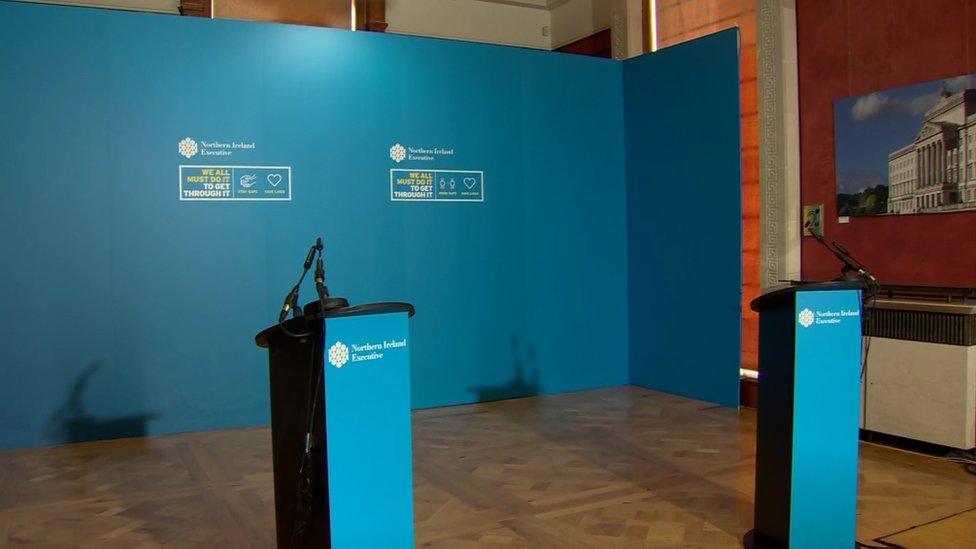
Arlene Foster and Michelle O'Neill have not appeared at the press podiums together since June
There is also still the added problem of ensuring the executive's messaging is consistent and joined-up.
DUP leader Arlene Foster and Sinn Féin Vice-President Michelle O'Neill are still not doing press conferences together due to Ms O'Neill's attendance at the funeral of senior republican Bobby Storey in June, which led to accusations she had breached Covid-19 public health guidelines.
Health Minister Robin Swann and his officials have been appearing at the podium on a regular basis over the past few weeks, but there have been calls for the first and deputy first ministers to step up again and jointly field questions on the executive's decisions.
Furlough
The Treasury-led scheme is winding down and is due to stop at the end of October.
That presents a problem for the executive, given how many firms in NI have relied heavily on the scheme.
Stormont's Department for the Economy estimated that more than 200,000 workers had initially been furloughed, with almost 330,000 people in NI receiving some kind of government financial aid due to the pandemic.
Although a lot of businesses have been able to bring back some of their staff, others have not and the executive warned that the possibility of 100,000 people in Northern Ireland claiming unemployment benefits by Christmas is a "conservative estimate".
With the extra help from Westminster drying up, that leaves questions for the executive in terms of how it plans to manage this and support businesses that are still struggling.
On Thursday, the executive agreed to write to the Treasury to formally ask for an extension of the scheme - but the government has repeatedly ruled out the possibility.
Brexit trade talks
The not-so-small matter of the UK securing a trade deal with the EU is due to dominate headlines once more - and Northern Ireland is a key part of that debate.
Boris Johnson has been clear on the timetable. He says the transition period - which means the UK is still following many EU rules - must end on 31 December 2020.
In June, the Stormont Assembly backed a proposal for the transition period to be extended - but it was not binding.
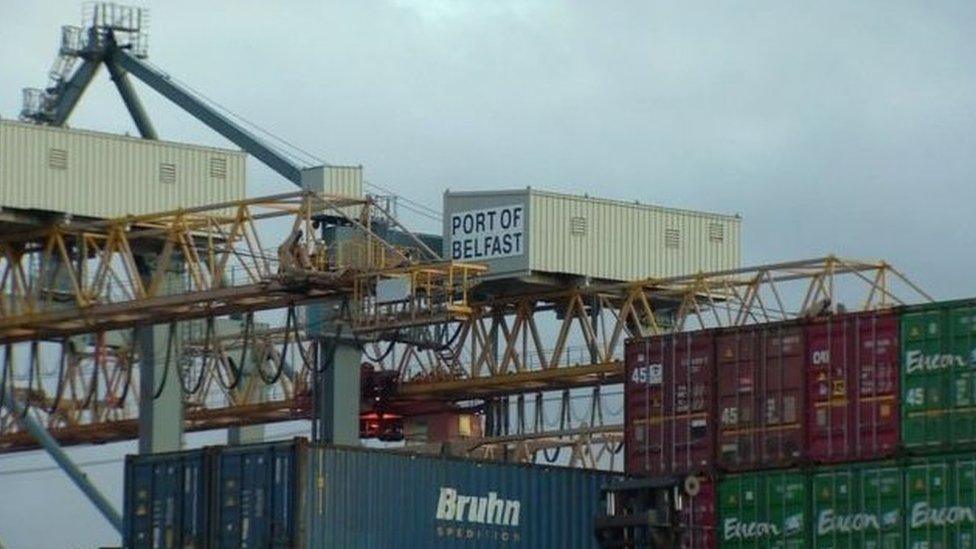
There will be new checks for some goods entering NI from the rest of the UK after 1 January
Negotiations between the UK and EU have failed to produce a trade deal so far, so they will have to ramp up in the autumn in order to conclude before the government's New Year's Eve deadline.
After that, goods entering NI from Great Britain will need customs declarations.
The government has already announced funding for a new system to manage that, but Stormont ministers and NI businesses say they still need clarity on the prime minister's promise that trade between NI and the rest of the UK will be "unfettered".
Party conferences
Usually autumn is jam-packed with political party annual conferences - but coronavirus has put a halt to that.
The Conservative Party is going virtual this September, while Labour has postponed its conference - events which would normally see an abundance of NI politicians in attendance.
The Stormont parties also have their conferences on the backburner and nothing has been confirmed yet for any of them, even virtually.
That's not surprising given the current public health circumstances, but it marks another tone change in what has already been one of the strangest years ever in politics.
Troubles pension
The dispute over who pays for the scheme to give payments to those severely psychologically or physically injured during the Troubles will persist in the coming months.
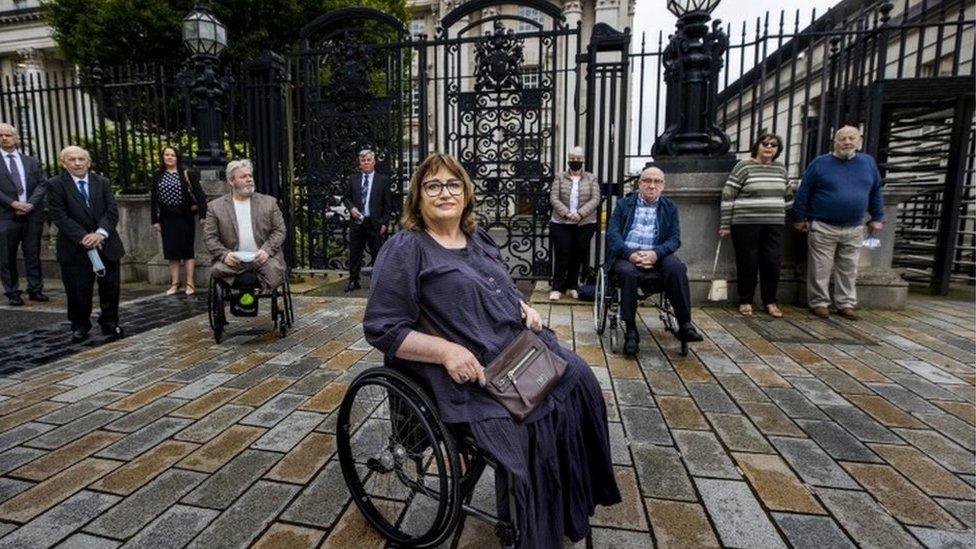
Bomb survivor Jennifer McNern (centre) won a case against the Executive Office for delaying the implementation of the pension
Although the Department of Justice has now been designated to administer the pension, Stormont and Westminster remain in a stand-off over funding.
The executive says it cannot afford to fund the scheme entirely out of its block grant, with upper estimates of £800m being floated as a potential cost. It wants Westminster to help fund the pension, as those injured in other parts of the UK can also apply to it.
In truth, no-one knows the true cost of the pension yet, but payments will be backdated to 2014 and it will run for several decades.
It is thought London may make some form of financial contribution, but the arguments over funding and controversy over eligibility for the scheme will continue to divide the political parties.
There is plenty to keep up with, but BBC News NI will have all the latest developments on these political stories and more throughout the autumn.
- Published19 August 2020
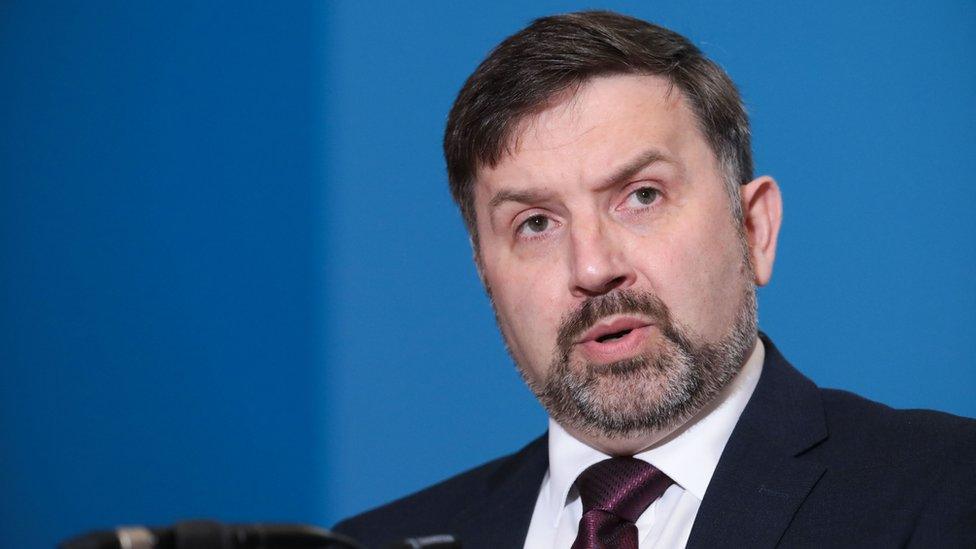
- Published15 August 2020
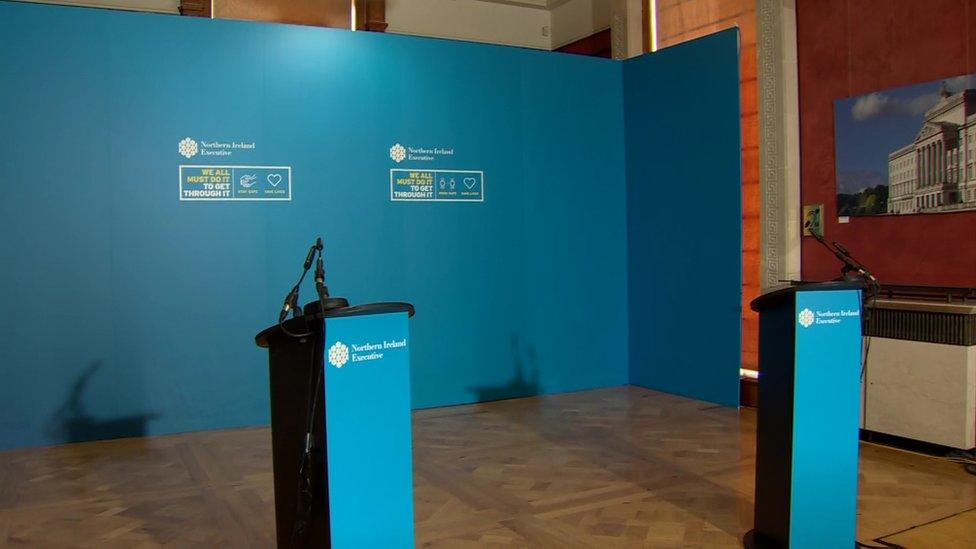
- Published7 August 2020
